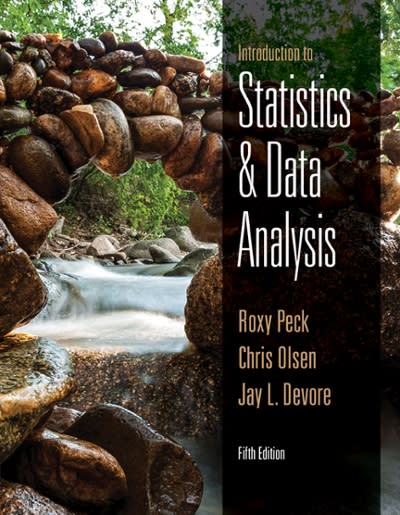11.4 In the paper Happiness for Sale: Do Experiential Purchases Make Consumers Happier than Material Purchases? (Journal...
Question:
11.4 In the paper “Happiness for Sale: Do Experiential Purchases Make Consumers Happier than Material Purchases?” (Journal of Consumer Research [2009]:
188–197), the authors distinguish between spending money on experiences (such as travel) and spending money on material possessions (such as a car). In an experiment to determine if the type of purchase affects how happy people are with the purchase after it has been made, 185 college students were randomly assigned to one of two groups. The students in the
“experiential” group were asked to recall a time when they spent about $300 on an experience, and then they rated this purchase on three different happiness scales that were then combined into an overall measure of happiness. The students assigned to the
“material” group were asked to recall a time that they spent about $300 on an object.
The mean happiness score was 5.75 for the experiential group and 5.27 for the material group. Standard deviations and sample sizes were not given in the paper, but for purposes of this exercise, suppose that they were as follows:
Experiential Material n1 5 92 n2 5 93 s1 5 1.2 s2 5 1.5 Use the following Minitab output to carry out a hypothesis test to determine if the data supports the authors’ conclusion that “experiential purchases induced more reported happiness.” Use a 5 .05.
(Hint: See Example 11.3.)
Two-Sample T-Test and CI Sample N Mean StDev SE Mean 1 92 5.75 1.20 0.13 2 93 5.27 1.50 0.16 Difference 5 mu (1) - mu (2)
Estimate for difference: 0.480000 95% lower bound for difference: 0.149917 T-Test of difference 5 0 (vs .): T-Value 5 2.40 P-Value 5 0.009 DF 5 175
Step by Step Answer:

Introduction To Statistics And Data Analysis
ISBN: 9781305445963
5th Edition
Authors: Roxy Peck, Chris Olsen, Jay L Devore






